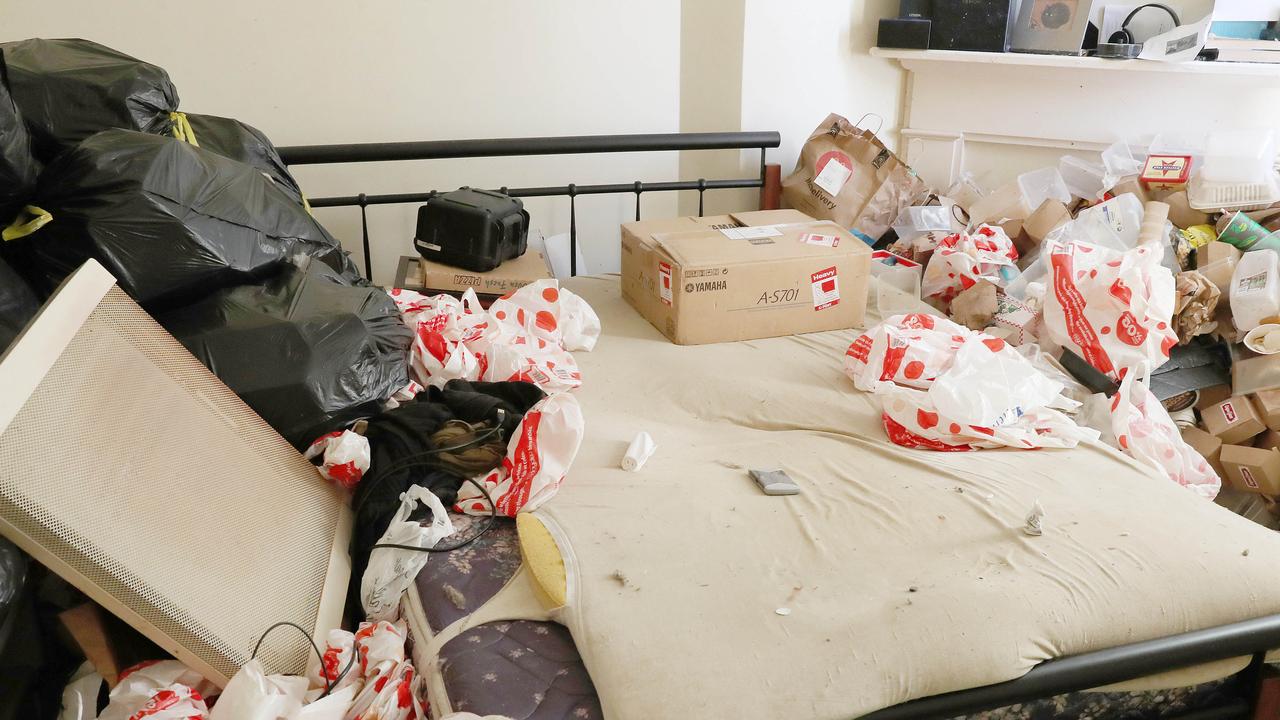Tactics ‘professional scammers’ use to fleece landlords exposed
An Australian woman has revealed the nightmare that unfolded after a seemingly-perfect tenant began renting her property.
EXCLUSIVE
Landlords and real estate agents are calling out the appalling behaviour of so-called ‘professional tenants’ – renters who know how to manipulate tenancy laws to live rent-free.
Rachel, 37, had a horror experience with a professional renter in the central western NSW town of Orange, where she lives with her husband and three young children.
After buying a new home in need of renovation, the family opted to rent it out for a short period while they waited for the plans to be finalised and council building permits to be issued.
They decided to handle the leasing themselves, and advertised for a tenant looking for a three month fixed-term lease.
Rachel said that her tenant claimed to be a single mother with two children and she contacted her employer reference but didn’t look into her rental history, before both parties signed a formal tenancy agreement.

“I took her a bit on face value and felt a bit sorry for her, I guess.”
Rachel said that initially, her tenant’s “communication was amazing” adding that she paid two weeks rent upfront and was often seen mowing the front grass.
But a few weeks later, her dream tenant became a nightmare.
Rachel said it turned out that her tenant didn’t have custody of her kids, so they never moved into the house, but another seven to eight people did move in, along with several dogs, despite the tenancy agreement prohibiting this.
“This is what they do. Somebody gets a house and they all come and live in it.”
She said no more rent was ever paid and attempts to inspect the house failed with the tenant refusing them entry on several occasions despite them providing adequate notice via mail and email of upcoming inspections.
She alleges the people living in her house were “dealing Ice out of the back shed and spray painted and graffitied the back fences,” adding that she fielded several calls from her angry neighbours.
Know more about this story or have a similar one? | michelle.bowes@news.com.au

Frustrated, Rachel contacted the police about the tenant, who she said “didn’t want to know anything about it” and advised her to pursue the matter through the NSW Civil and Administrative Tribunal (NCAT).
She did just that, citing the unpaid rent and prohibited pets as cause to terminate the tenancy but despite the fact that her tenant didn’t actually show up to the hearing, the tribunal found in the renter’s favour.
“They didn’t care about us at all,” Rachel said.
In a twist, the tenant then took Rachel and her husband to the tribunal, citing that they were harassing her by driving past the property.
“That was the route for me to take my children to daycare,” Rachel said.
The tenant again failed to turn up to the hearing and as she had brought the case, it didn’t go ahead. What it did do however was buy her tenant more time in the property.
Finally, at the end of the lease agreement with the tenant refusing to leave their property, the couple went back to the tribunal who this time found in their favour.
“The only way that we got her out was that it was the end of the fixed-term lease,” Rachel said.
The tribunal also ruled that the tenant had to repay the couple the rent she had failed to pay, but Rachel said that after she vacated the property, their tenant “disappeared”.
“Because we didn’t have her physical address we couldn’t chase her for the money.”
“In the end it took four months to get her out and cost $8,000 in lost rent,” she said.
“She knew how the system worked and she played me.”

Rachel said one lesson she learned from the ordeal was to never try to rent out a property privately, without the assistance of a real estate agent or property manager.
She said she also learned how stacked tenancy laws are against landlords.
“I know landlords get a bad rap but there’s nothing to help us.”
Hayden Groves, president of the Real Estate Institute of Australia told news.com.au that in some parts of Australia, tenancy laws have evolved too far in favour of tenants.
“We’re hearing of rulings in local jurisdictions that actually disallow an owner of the property to re-take occupancy despite the fixed tenancy ending.”
He added that “sadly some tenancy advocates will encourage and coach tenants on how to exploit tenancy laws to their own advantage and effectively avoid their obligations under a lease agreement.”
“For example, a tenant that is seeking to prematurely end a fixed term lease, may be advised to simply stop paying rent and move out at their convenience knowing that the owner is unlikely to pursue them for unpaid rent due to the cost and risk of doing so, particularly when a replacement tenant can be quickly found.”

Brisbane landlord Simone* also had a horror experience with a professional tenant that follows a similar script.
The tenancy was fine initially, after she used an agent to lease out her investment unit but six months into their lease, her tenants began reducing the amount of rent they were paying, due to what they claimed were problems with the apartment that needed fixing.
“They were finding faults but not giving us access to the apartment to fix them, and instead using them as a basis to pay less rent,” she said.
A few months later they stopped paying rent all together and disappeared, leaving their belongings in the unit.
Further investigations by their agent found that the couple were what she describes as “professional scammers”.
“They did this for years in NSW and now they’re doing it in Queensland.”
She said although her agent had received a reference from a previous agent before leasing the property to the tenants, it was an old reference, given in the early months of the previous tenancy while they were still playing the part of model tenants.
In fact, they had done the same during their time in her unit, requesting a reference from her agent early in the tenancy period, to ensure it would be positive.

Given the lack of rental payments, Simone’s agent then took the steps necessary to terminate the lease, and once the request had been granted, Simone changed the locks on her unit and the tenants were notified to collect their belongings.
During previous correspondence, she said, they had indicated that they didn’t want their furniture, just their personal items.
However the couple then contacted the police regarding being locked out of the property and have since escalated the matter to the Queensland Residential Tenancies Authority and the Queensland Civil and Administrative Tribunal (QCAT).
They are pursuing Simone for expenses related to hotel stays and the purchase of new furniture in relation to their eviction and, two months on, she is still awaiting a warrant for possession to be granted by QCAT, giving her the right to access her own property.
“They know the laws inside and out and not only do they get out of paying rent, they also try to get money out of the landlord,” Simone said.

She, too, believes tenancy laws are skewed too far in favour of renters.
“A rental transaction should be a reasonable experience for both parties, but as a result of what has happened we think we’re just going to try to sell the unit,” she said, rather than risk another foray into the rental market.
Mr Groves agreed that the renter-friendly tenancy laws were forcing some landlords to sell up.
“As a result of the recent shifts in tenancy laws favouring tenants, property investors are selling up and moving their funds to alternate investment vehicles which is damaging supply and pushing up rents.”
*Name changed for privacy reasons.
Know more about this story or have a similar one? | michelle.bowes@news.com.au





